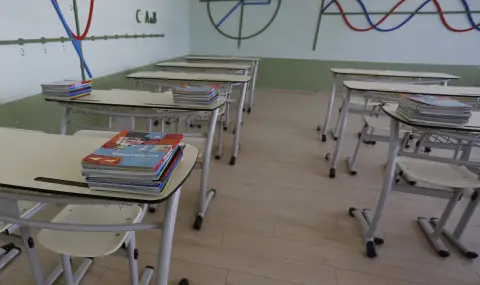Many times we have heard how school principals talk about a program “Erasmus”, how projects are protected, how schools are equipped. But is everything so “rosy”, or have we Bulgarianized the program in our country. In FACTS some time ago we wrote about how Dr. Maria Mateeva-Kazakova - director of the Institute for Research, Analyzes and Strategies, raised the alarm with a complaint to a number of institutions about "mismanagement of European funds". from the Center for the Development of Human Resources (HRDC), managing the application of the "Erasmus" program; in Bulgaria. The case has a continuation, which very clearly outlines the Bulgarian version of the “Erasmus” program.
What is the case
This is a submitted project proposal Language training for job search for Ukrainian refugees in Bulgarian and Romanian (levels A1 and A2) 2023-1-BG01-KA210-ADU-000158605. The project aims to develop a program and plan by highly qualified university specialists for training Ukrainian refugees in Bulgaria and Romania in Bulgarian and Romanian with the aim of their successful adaptation for integration into the labor market. And here in Dr. Kazakova's complaint, we read that it will be a matter of a series of practices that can be argued to be defined as a vicious management of European funds by the Center for the Development of Human Resources, managing the implementation of the “Erasmus” program. in Bulgaria.
How the EC monitors “harmful practices“ under the "Erasmus" program in our country
After the project is submitted in 2023, rejection follows. In 2024, the response of the CDR to the resubmission of the project consists of pressure through prohibited by the rules for the evaluation of Erasmus projects. practices such as:
- references to a project submitted in the framework of a previous call for applications (which shows that there is no anonymization, transparency of evaluation and independence of evaluators);
- presentation of conclusions without the mandatory arguments for the program;
- use of epithets and non-professional biased vocabulary, including exclamation marks and censure of candidates;
- factual replacement of the main object of the proposal.
The European Commission is also aware of the case.
“Dear Mrs. Mateeva-Kazakova,
Thank you for paying attention to some questions related to the evaluation of the project application 2024-1-BG01-KA210-ADU-000249618.
We confirm that the assessment should be made solely on the basis of the information contained in the application. It should be maximally objective and professionally formulated. We will remind the National Agency to emphasize these principles again during trainings with external experts. The policy of the Bulgarian National Agency with regard to external experts is under the close supervision of the Commission, writes Michael Toich, Head of the Erasmus+ Coordination Department. in the EU.
How the program is checked in our country
The Human Resources Development Center is an independent structure under the Ministry of Education and Science. Since the CDHR works with European money, it falls under the supervision of the European Commission, the OLAF Commission, the European Prosecutor's Office, etc. Of course, all European structures would be activated if there were any reports. And such – as we see, there is.
How things work in our country if someone appeals
It appears that there is no public source of what the project appeal procedure is, it is at the discretion of the CDR. In other words – there is a lack of transparency about appeal procedures. According to the management of the CDHR, the appeal is governed by Regulation (EU) 2021/817 of the European Parliament and of the Council of May 20, 2021 on the establishment of “Erasmus+” – program of the Union in the field of education and training, youth and sports, which regulates the general principles of the functioning of the program, as well as from the internal normative document - Procedure for selection and negotiation (PSD).
The mentioned PSD does not mention the specific mechanisms for project appeals. Another important document, the Erasmus Program Guide, has very brief general information on the subject, which does not cover the procedures of the individual national authorities.
In essence, the appeal procedure is governed by the internal regulatory document - Selection and negotiation procedure. However, it is not publicly available and the appeal is carried out on some principle by experts internal to the CDHR, whose impartiality cannot be verified. External experts are also named, but without making it clear how they are chosen, how their independence is guaranteed and what are the criteria for their competence on the specific topic.
What happens is that a biased wording of these is obtained by re-evaluators who apparently draw conclusions based on a pre-set request from the CDRC, which unilaterally awards only in the interest of the CDRC - further reduction of points on each element. Both the knife and the cheese are in one organization? Why?
